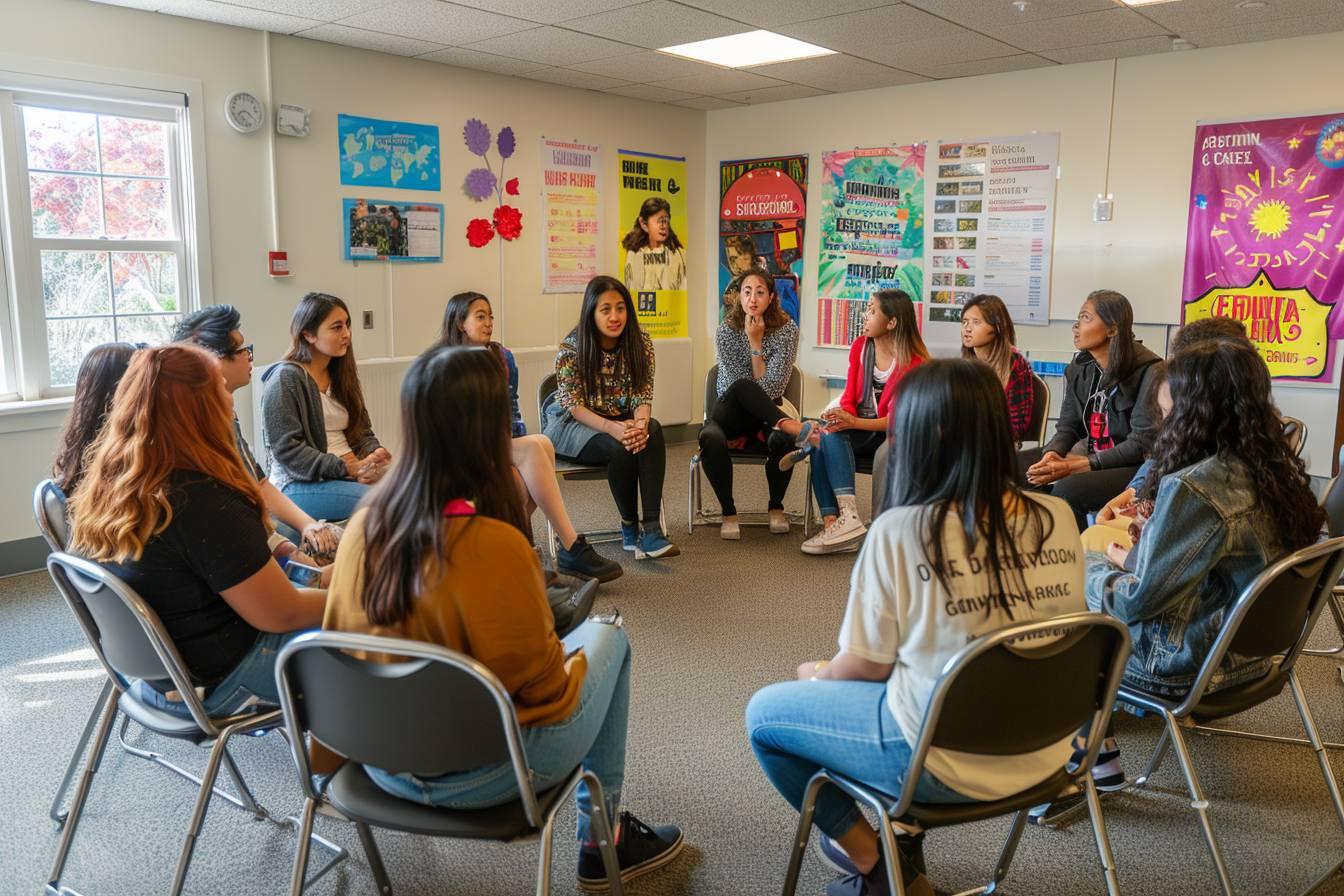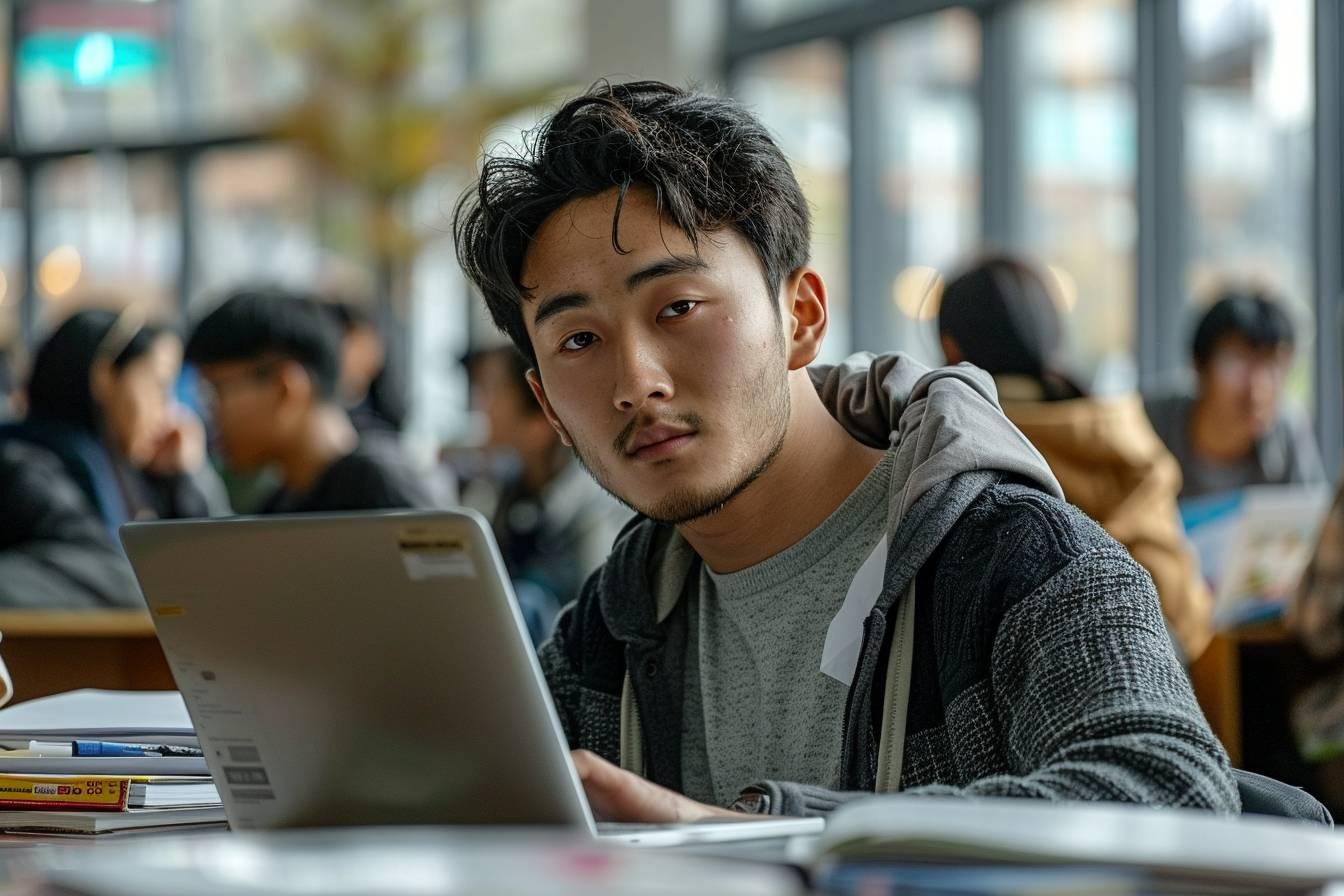This article explores the challenges faced by international students and offers strategies for overcoming them. Here are the key takeaways :
- Language barriers can be addressed through immersion and consistent practice
- Cultural adaptation is facilitated by open-mindedness and active participation in local customs
- Homesickness can be combated by building a support network and maintaining connections with home
- Academic and career challenges require proactive engagement with university resources
- Mental health should be prioritized through self-care and utilizing available support services
International students embark on a journey filled with opportunities and challenges. As they navigate unfamiliar territories, they encounter a myriad of obstacles that can impact their academic and personal growth. In this article, we’ll delve into the key hurdles faced by these intrepid scholars and explore effective strategies to overcome them. Our insights draw from years of observing and analyzing the experiences of students from diverse backgrounds.
Communication barriers: overcoming linguistic hurdles
One of the most significant challenges international students face is the language barrier. Adapting to a new linguistic environment can be overwhelming, especially when it comes to academic writing, understanding local accents, and grasping idiomatic expressions. As a journalist who has covered numerous stories on global education, I’ve witnessed firsthand the struggles many students encounter in this area.
To tackle this challenge, we recommend the following strategies:
- Enroll in language classes before arrival to build a strong foundation
- Practice speaking the local language daily, even in casual settings
- Utilize language learning apps and online resources for continuous improvement
- Participate in conversation groups or language exchange programs
It’s important to remember that language proficiency is a gradual process. Persistence and consistent practice are key to overcoming this hurdle. Many successful international students have shared that immersing themselves in the local culture and engaging with native speakers significantly accelerated their language acquisition.
Studies show that international students who actively engage in language practice improve their proficiency by 30% faster than those who don’t.
Navigating cultural differences and social integration
Cultural adjustment is another formidable challenge for international students. Adapting to different customs, values, and social norms can lead to culture shock and feelings of displacement. As someone who has extensively covered societal trends, I can attest to the profound impact cultural differences can have on an individual’s experience abroad.
To ease the transition and foster social integration, consider these approaches:
- Research local customs and etiquette before arrival
- Join cultural clubs and international student organizations
- Attend cultural events and festivals to immerse yourself in local traditions
- Be open-minded and willing to learn from new experiences
Embracing cultural diversity can lead to personal growth and a broader worldview. Many international students report that their cross-cultural experiences have been transformative, enhancing their adaptability and interpersonal skills.
Combating homesickness and building a support network
Homesickness is a common challenge that can significantly impact an international student’s well-being. Missing family, friends, and familiar surroundings can lead to feelings of isolation and disconnection. To address this issue, we suggest:
- Staying connected with loved ones through regular video calls
- Creating a supportive network of friends in your new environment
- Decorating your living space with reminders of home
- Participating in activities that celebrate your cultural heritage
Building a strong support system is essential for emotional well-being and academic success. Many universities offer counseling services and support groups specifically tailored to international students’ needs.

Tackling academic challenges and career development
International students often face unique academic challenges, including adapting to different teaching methods, meeting higher academic expectations, and developing critical thinking skills. Additionally, they may encounter obstacles in their career development due to visa restrictions and limited job opportunities.
To overcome these challenges, consider the following strategies:
| Academic Challenges | Career Development |
|---|---|
| Seek clarification from professors | Utilize career services at your institution |
| Form study groups with peers | Network with alumni in your field |
| Use university resources like writing centers | Gain practical experience through internships or volunteer work |
| Develop time management skills | Stay informed about visa regulations and work opportunities |
Proactively addressing academic and career challenges can lead to significant personal and professional growth. Many international students have found that seeking guidance from academic advisors and career counselors has been instrumental in their success.
According to recent data, international students who actively engage in career development activities are 40% more likely to secure employment after graduation.
Prioritizing mental health and well-being
The cumulative effect of various challenges can take a toll on international students’ mental health. Stress, anxiety, and cultural stigma surrounding mental health issues can exacerbate these concerns. As someone who has closely followed trends in global education, I’ve observed an increasing focus on mental health support for international students.
To prioritize your mental health and well-being, consider these approaches:
- Utilize university counseling services, which often offer culturally sensitive support
- Join support groups or peer mentoring programs
- Practice self-care through regular exercise, meditation, or hobbies
- Maintain a balanced lifestyle, including proper nutrition and sleep
Taking proactive steps to manage stress and maintain emotional balance is crucial for academic success and personal growth. Many universities now offer specialized programs and resources to support international students’ mental health needs.
Addressing practical challenges and time management
International students often face a range of practical challenges, from adapting to different time zones to navigating transportation systems and finding familiar foods. Effective time management becomes essential when balancing academic work, social life, and cultural exploration.
To address these practical challenges, we recommend:
- Using time management apps and digital tools to stay organized
- Creating a structured daily routine to maximize productivity
- Exploring local resources and international grocery stores for familiar products
- Seeking advice from experienced international students or mentors
Developing strong organizational skills and adaptability can significantly enhance an international student’s experience. Many successful students have found that embracing local practices while maintaining elements of their home culture creates a balanced and fulfilling lifestyle.
In conclusion, while international students face numerous challenges, they also have access to a wealth of resources and strategies to overcome them. By proactively addressing these hurdles and seeking support when needed, international students can thrive in their new academic environments and emerge with valuable skills and experiences that will serve them well in their future careers and personal lives.
